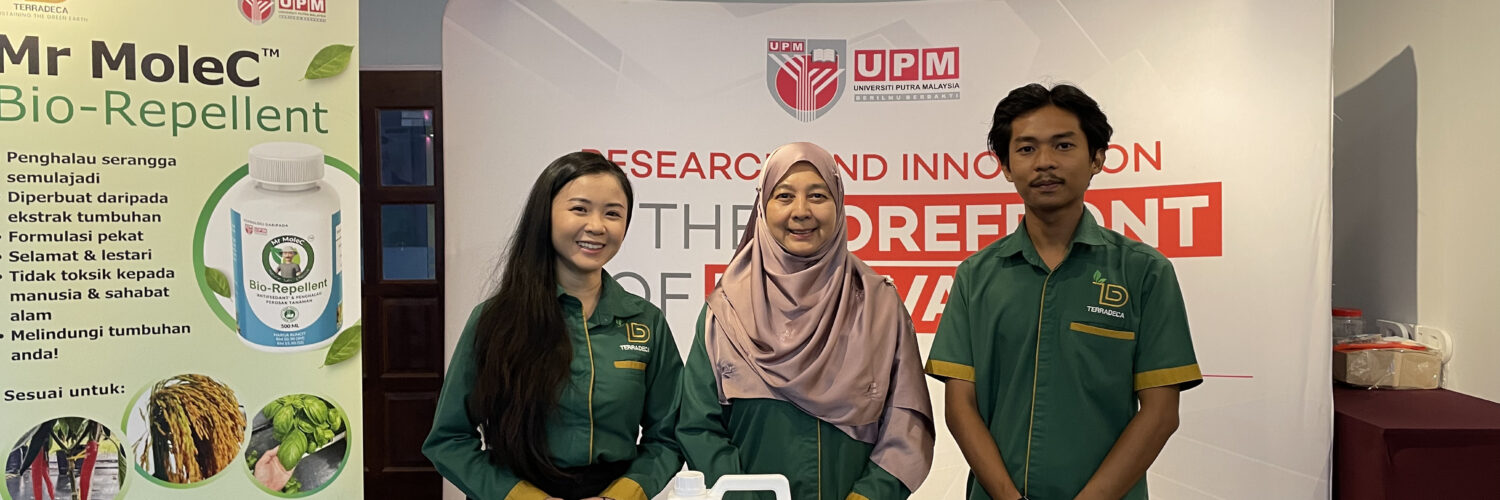By Aileen Anthony
The solution, called Mr MoleC, is a plant-based, non-toxic, aromatic bio-repellent. It not only repels insects it also disrupts their neural feeding pathways. It’s non-toxic for humans, crops, and even beneficial pollinators. It can be used on its own or as a cocktail with other inputs farmers already used. And unlike typical less-than-appealing-smelling chemicals, Mr MoleC has a pleasant aroma—making it one of the few agricultural solutions that can also be used at large scale farms and in the home.
In this feature, the TerraDeca team shares their beginnings, their journey, and their commitment to the vision of “Sustaining the Green Earth.”
A New Season for Farming
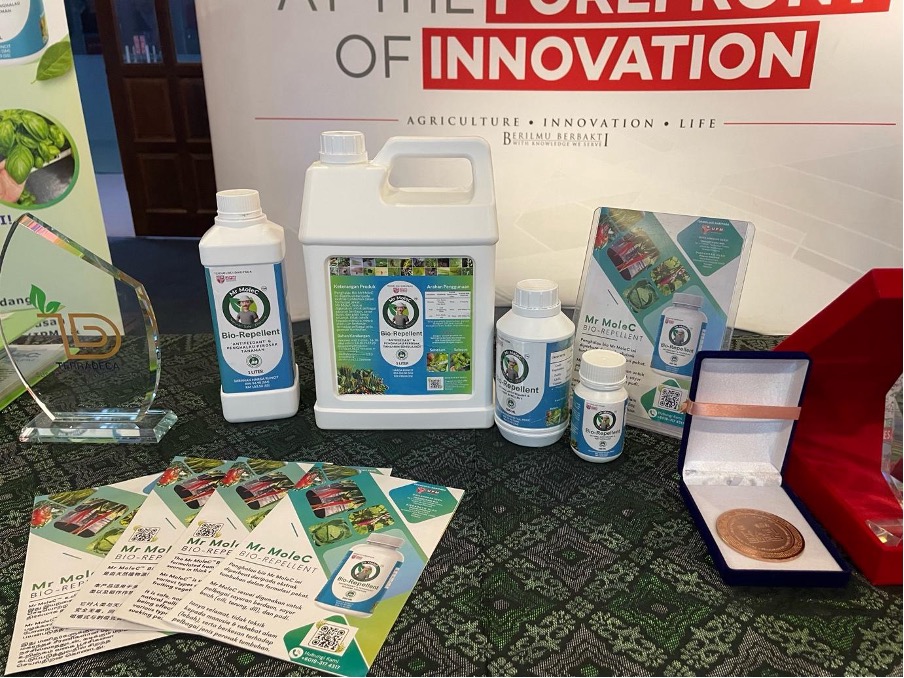
It all began with a discovery —not in the middle of a bustling farm, but inside a research lab. In 2024, Associate Professor Dr Nur Kartinee Kassim, a phytochemist from Universiti Putra Malaysia, filed an intellectual property (IP) for a new invention: a bio-repellent and antifeeding compound. She commercialised this breakthrough and named it Mr MoleC—a nod to molek, the Malay word for “beautiful,” and the capital “C” for her love of carbon and chemistry.
And so, TerraDeca was born.
A Team for the Earth
The company’s name reflects its founder’s identity. “Terra” means Earth in Latin. “Deca” demonstrates her affinity for organic carbon chain structures. “We can’t save the whole planet,” said Dr Kartinee, “but we can do our part to transform agriculture toward a greener way to farm.”
Her first recruit was Senior Agronomist, Hilda Carol Ahkui, now TerraDeca’s Chief Executive Officer (CEO). Next came Chief Operating Officer (COO) Luqman Hadi bin Iskandar, who has a background in food service management. Together, they had science, agronomy, and business—the next step: validation.
Just weeks after formation, TerraDeca, under the university startup incubator programme, called InnoHub, received a grant from PUTRA SCIENCE PARK UPM—along with an invitation from MRANTI to exhibit from at MAHA 2024, Malaysia’s largest agriculture expo.
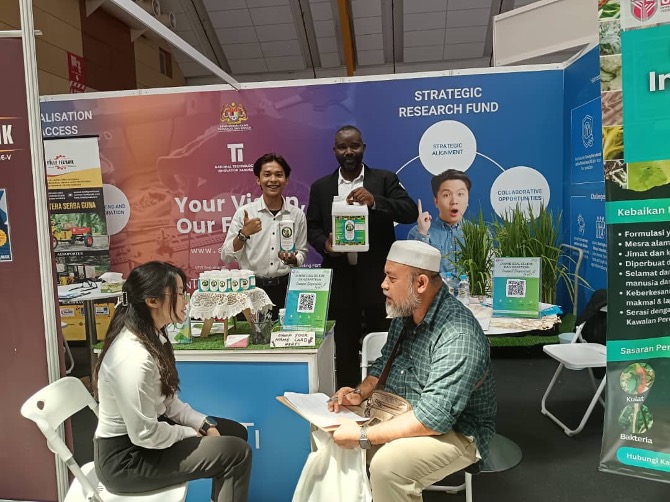
“It was high-stakes,” said Dr Kartinee. “We had only two weeks to prepare, but we saw it as more than just a launch. It was our first market validation exercise.”
Over the course of MAHA 2024, they offered free trials, conducted surveys, and listened closely to farmers and growers. “We asked: Would you buy this? What is the comfortable price range? What are your biggest problems in pest control?” said Dr Kartinee.
The answers were sobering. Pests had become resistant. Pesticide costs had tripled. Yields were falling. Some farmers were borrowing to afford drones and fertiliser—hoping the next harvest would pay off.
And then there were the children.
“One paddy farmer told us,” Carol shared, “his daughter’s school is next to the paddy field. On mornings when drones spray the chemicals, the drift blows the spray onto the children during assembly. The kids are breathing in the pesticides. It’s heartbreaking.”
In other instances, the team saw the effects of exposure to chemical pesticides, such as burnt skin, blackened fingernails, and other long-term health effects. “We have to do something to help,” said Carol, adding, “We can’t just ignore what we’ve witnessed.”
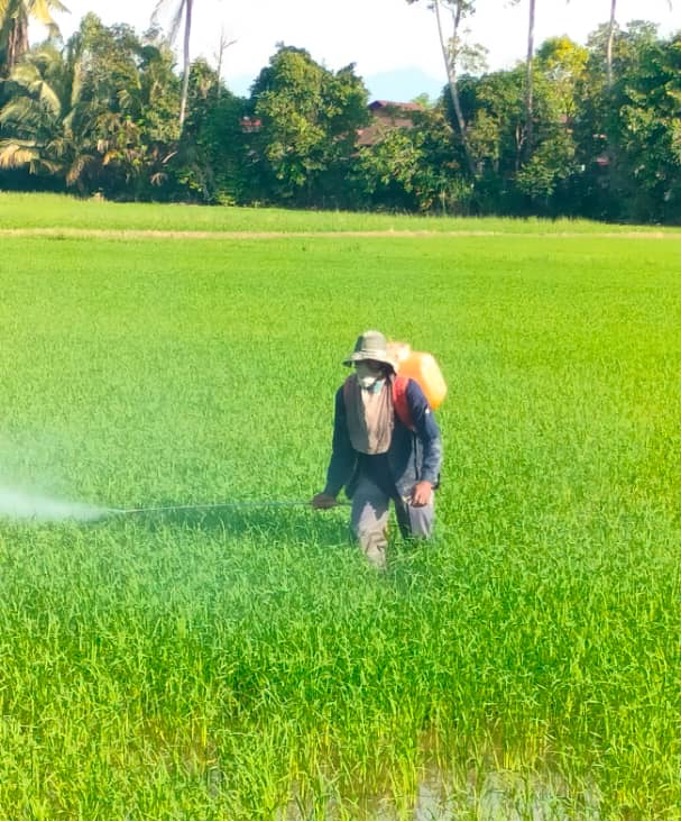
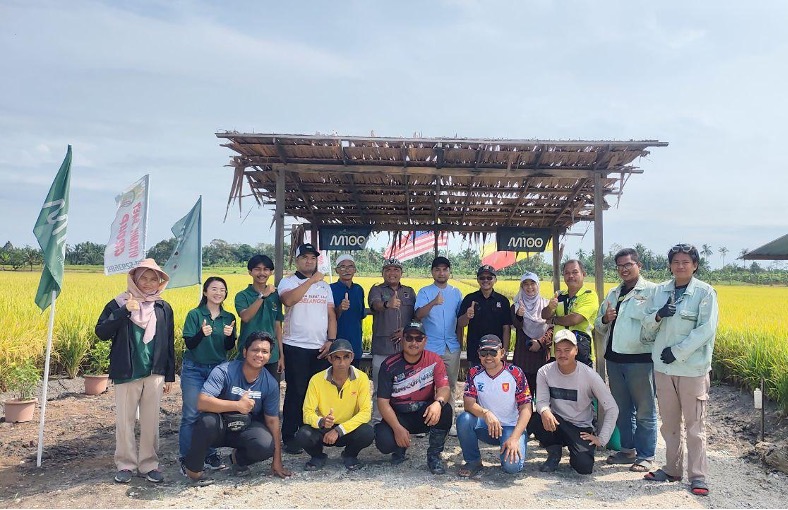
Science with Soul
Here is where Mr MoleC makes a difference. More than a product, it represents a new philosophy of pest control—one that’s grounded in nature, science, and safety.
“Phytochemistry is my field,” Dr Kartinee explained. “We search for bioactive compounds in plants. There are millions of them. It’s like finding a needle in a haystack. And it took me six years to find the right one (compound).”
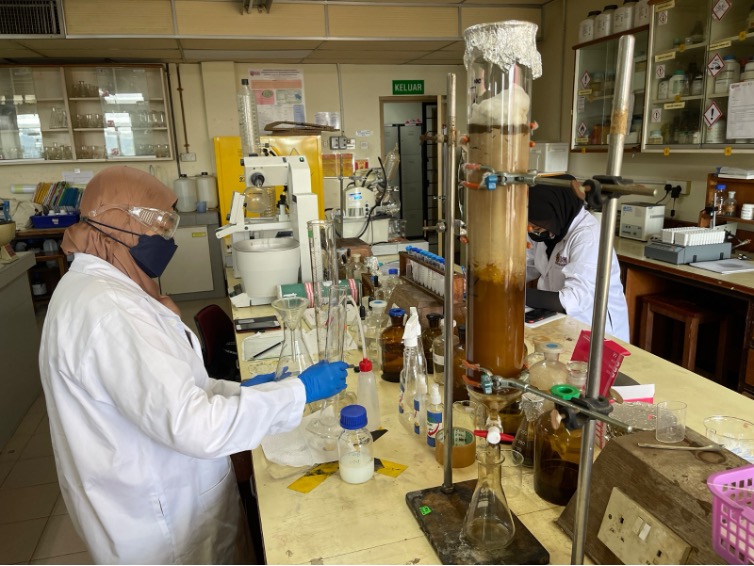
That compound, undisclosed for proprietary reasons, is composed of life’s building blocks: carbon, hydrogen, and oxygen. Dr Kartinee expounded, “Plants have evolved their own natural defence systems, producing compounds that help them survive against pests. These compounds work by releasing strong aromas to repel insects, disrupt their feeding so they lose the urge to eat, and even interfering with pest growth or reproduction.”
But isolating the compound wasn’t simple. “You can’t see atoms,” she said. Using spectroscopy, Nuclear Magnetic Resonance (NMR) and mass spectrometry, she and her team identified its structure and developed a formulation. “We used a carrier to turn it into a sprayable solution.”
The Science of Trust
Trust in agriculture is earned slowly. No amount of data matters until farmers see results in their own fields. TerraDeca understood this and prioritised field validation.
Through pilot projects and early adopter trials, the team walked the fields with farmers, listening and learning. They didn’t pitch; they built trust. This approach bore fruit.
The turning point came with a pesticide-free farmer from Megumi Farm, Sungai Buloh, who battled whitefly infestations in his sweet basil. “The pests spread viruses which crinkled the leaves,” said Carol. “He’d tried other bio-based products before, but nothing worked.”
He agreed to try Mr MoleC.
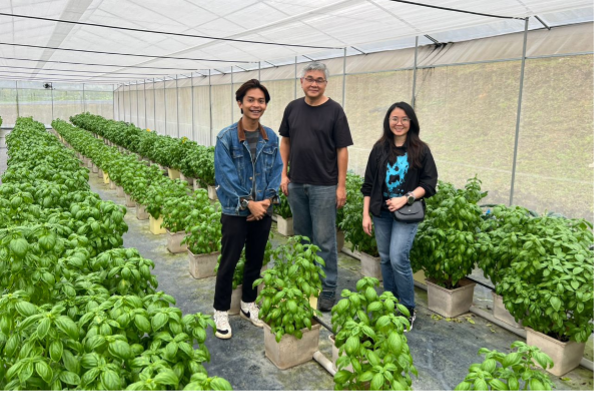
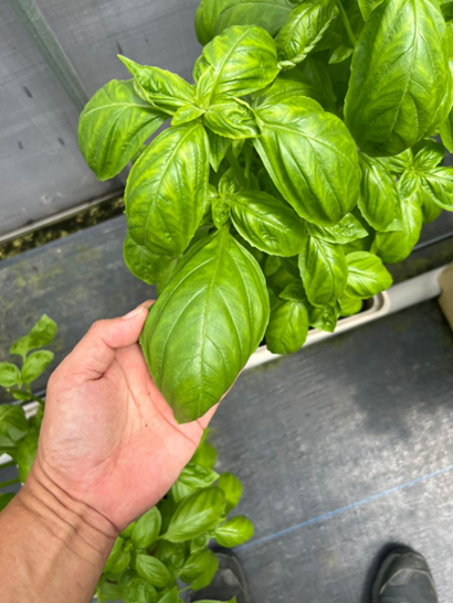
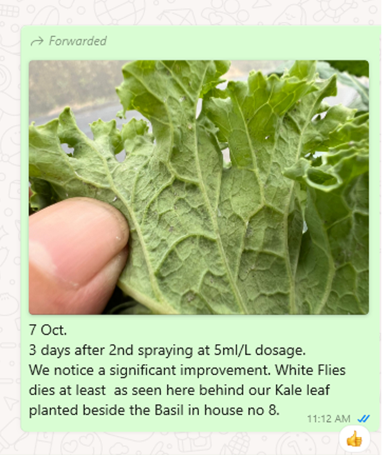
Heavily infested sweet basil with whiteflies. Losses in income can be up to RM 4,000 a month if not treated.
After the first spray, the results weren’t immediate. “He told us, ‘It’s not working.’ We asked him to increase the dosage,” said Carol. After the second spray, everything changed.
“The whiteflies were gone. Some were dead, others just vanished,” Carol recalled. He called them back and became their longest-standing customer. His basil leaves grew as large as his palm. The crop stayed productive longer from 3 months to 5 months.
Another breakthrough came from a chilli farm trial with Universiti Kebangsaan Malaysia. Farmers noticed that pollinator stingless bees (lebah kelulut) continued visiting even after sprays. “With chemical pesticides, you avoid spraying during flowering,” Carol explained. “But with Mr MoleC, the bees kept coming. Flowering periods extended, resulting in more fruit and higher yields.”
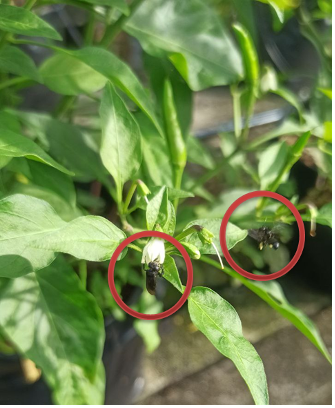
Looking Beyond a 1st Anniversary
As TerraDeca nears its first anniversary in November, the team is gearing up to partner with ingredient suppliers and trial farmers in joint ventures to expand its reach.
Awareness remains a hurdle. Many farmers, used to harsh pesticides, remain sceptical. That’s why TerraDeca runs education programmes in rural areas, showing firsthand what Mr MoleC can do.
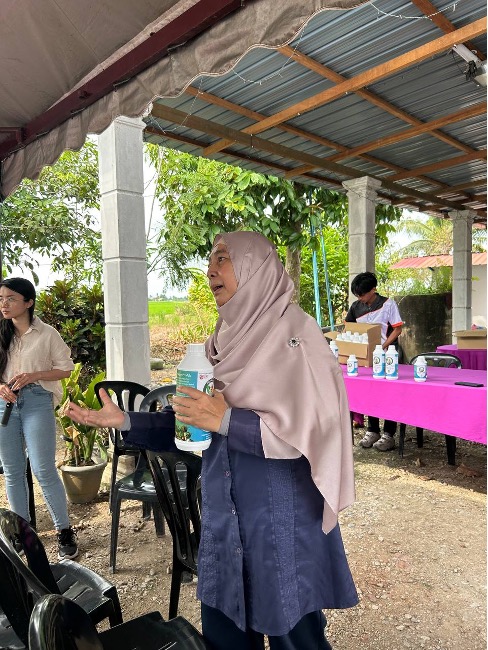
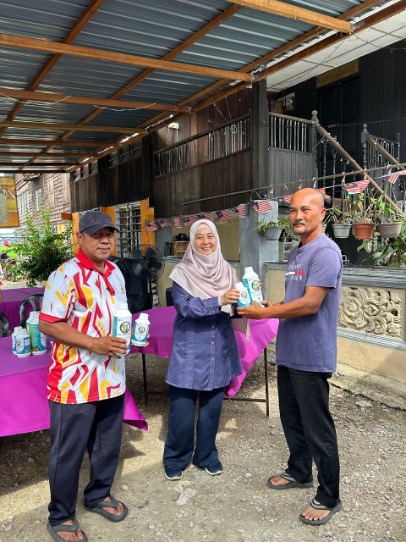
“Some say, ‘Organic doesn’t work.’ But we let them try it,” said Hadi. “When they see it working, they believe.”
The journey is gaining momentum. TerraDeca has been invited to participate in agricultural trials under the Tani Merdeka in Indonesia, opening doors to new regional markets.
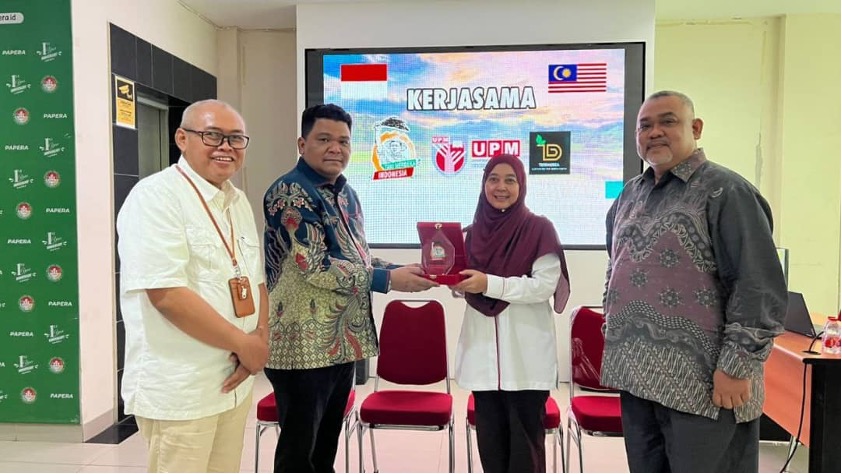
Closer to home, the team’s dedication to science-driven impact was recently recognised when they emerged champion in the Public Institution category at the Selangor Innovation Award 2025.
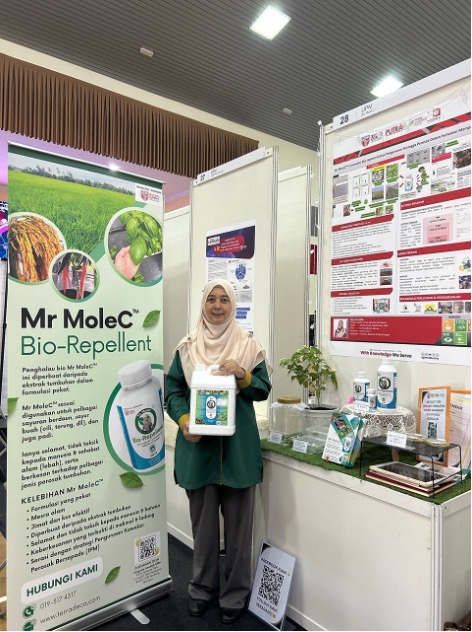
Significantly, world-recognised startup Qarbotech Sdn Bhd has entered into a venture-building programme with TerraDeca to provide mentorship, technical support, and market access.
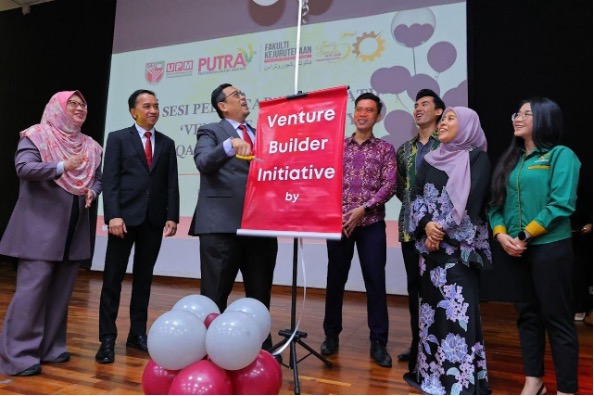
There’s still a long road ahead. But TerraDeca is ready to walk it—with science and sincerity. “And with a solution that smells this sweet,” Dr Kartinee quipped, “who wouldn’t follow it?”



